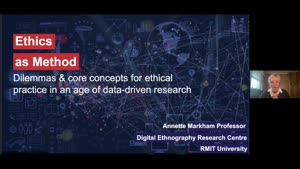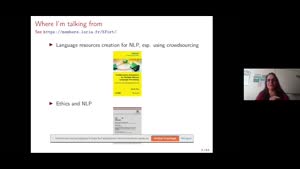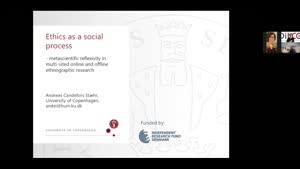DiLCo Methods Day 2023: Mediagrams in the study of digital workplace interaction, home-school communication, and inclusion (6 October) - Kristin Vold Lexander - University of Hamburg
- Lecture2Go
- Catalog
- F.5 - Geisteswissenschaften
- Sprache, Literatur, Medien (SLM I + II)
- Digital language variation in context (DiLCo)
Catalog
1536 Views
06.10.2023
DiLCo Methods Day 2023: Mediagrams in the study of digital workplace interaction, home-school communication, and inclusion (6 October)
DiLCo Methods Day 2023
Methods for on/offline nexus analysis: Multi-sited ethnography and heterogeneous data management
How do language practices in digital interaction at work and in the dialogue between parents and teachers affect work migrants’ experiences of inclusion and exclusion in the online/offline nexus? This question guides the research that this paper reports from, carried out with migrant workers and parents and their interlocutors (Thyness and Lexander 2023). The paper first focuses on the methodological challenge of collecting and analyzing data on online interaction to understand processes of inclusion, encompassing on- and offline practices. It thus draws on recent discussions of methodological implications of the increasingly blurred online/offline distinction (e.g. Bolander and Locher 2020). Second, with reference to work on the use of visual tools for researching linguistic repertoires (Busch 2016), it analyzes the use of mediagrams. Mediagrams are collaborative visualizations of the digital, linguistic and modal resources that participants mobilize in interaction with various interlocutors (Lexander and Androutsopoulos 2021), and in the project, participants came to use them in different ways that will be discussed here, for instance to narrate migrant trajectories with digital interaction as the starting point. Furthermore, mediagrams were brought into the classroom, in collaboration with teachers who wanted to use them to enhance their communication with migrant parents, leading to further methodological reflection.
Kristin Vold Lexander is a researcher at Inland Norway University of Applied Sciences and leads the project Digital interaction and multilingualism at work and in school: The case of Lithuanians in rural Eastern Norway (DigiMulti), funded by the Research Council of Norway 2020-2024. Her research focuses on multilingualism in digital interpersonal interaction in different contexts: among youth, in the family, at the workplace. Her recent publications appear in Journal of Sociolinguistics, Journal of Multilingual and Multicultural Development, and Language and Communication. Together with Jannis Androutsopoulos, she has written Multilingual Families in a Digital Age (Routledge).
The 2023 Methods Day focuses on multi-sited fieldwork across on- and offline sites of interaction and discourse, and the resulting need to manage heterogeneous data, such as interviews, fieldwork notes, and digital data in text and audiovisual format. These research techniques are familiar from earlier stages of digital ethnography and discourse analysis. However, they currently gain importance and complexity as researchers turn to the ‘online/offline nexus’, i.e. the interdependence of online and offline activities in everyday private or organizational communication.
This one-day event includes presentations by researchers with intensive first-hand expertise in conducting multi-sited research and managing heterogeneous data sets. Each presentation showcases a particular research technique or case study methodology. Topics include: designing and conducting blended fieldwork; context-sensitive strategies for on/offline data collection; and software-assisted coding, categorizing and triangulating heterogeneous data.
Video production: Office for Digitality in Teaching: Faculty of Humanities (uhh.de/gw-dl-buero)
---
DiLCo (‘Digital language variation in context’) is a 3-year international research network initiated in 2021 at the University of Hamburg. The network brings together researchers from Europe and USA with expertise in computational, interactional, and ethnographic approaches to digital language and linguistics. It aims to provide a platform for the development of interdisciplinary ideas in digital language and communication research, and for early-career capacity building.
---
DiLCo (‘Digital language variation in context’) is a 3-year international research network initiated in 2021 at the University of Hamburg. The network brings together researchers from Europe and USA with expertise in computational, interactional, and ethnographic approaches to digital language and linguistics. It aims to provide a platform for the development of interdisciplinary ideas in digital language and communication research, and for early-career capacity building.
Technical support
Please click on the link bellow and then fill out the required fields to contact our Support Team!
RRZ Support Link

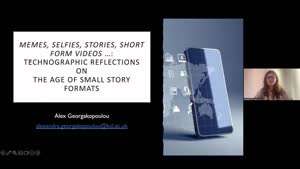
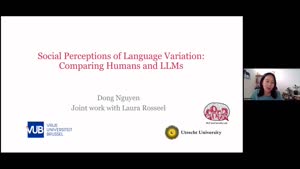
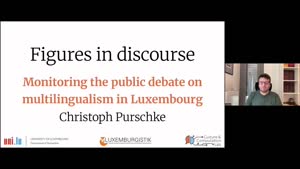
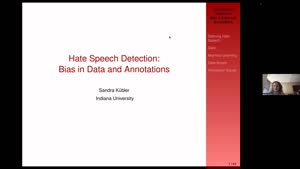
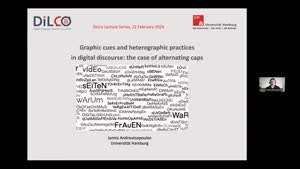
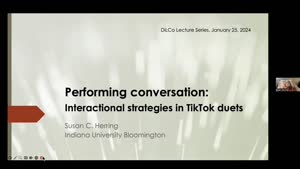
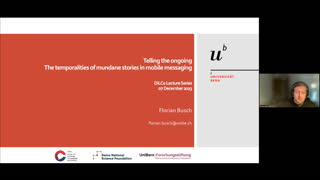
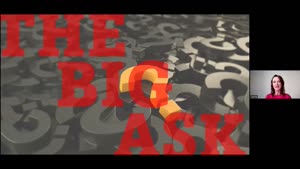
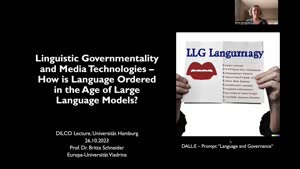
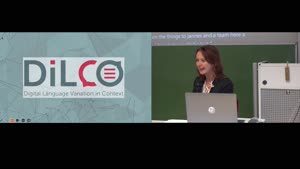
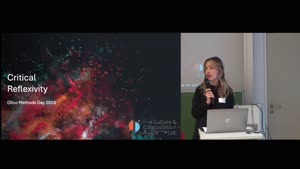
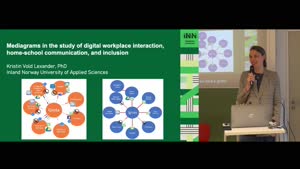
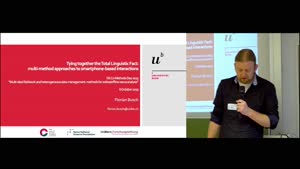
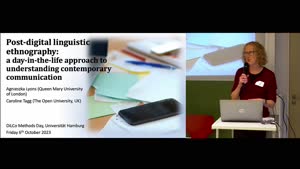
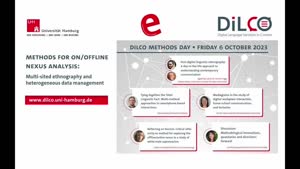
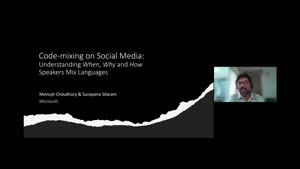
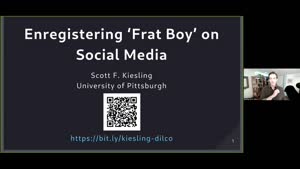
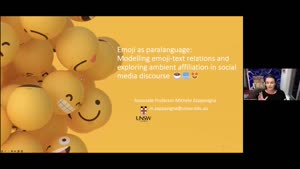
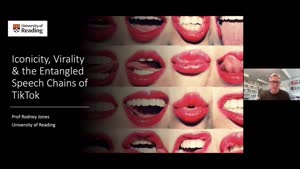
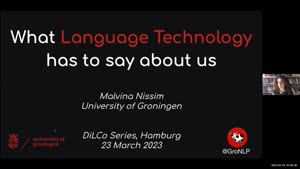
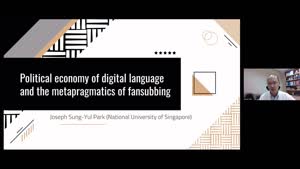
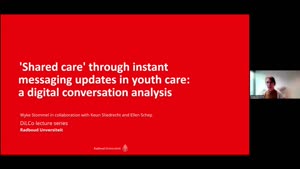
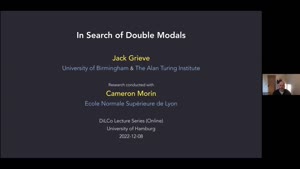
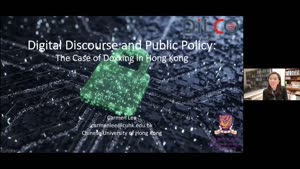
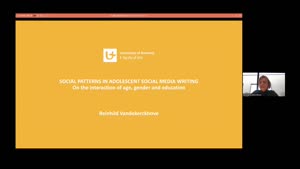
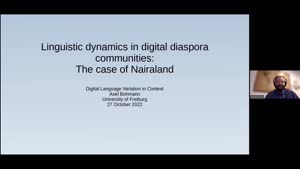
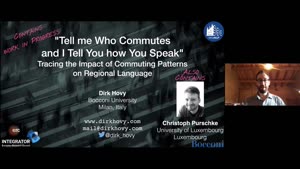
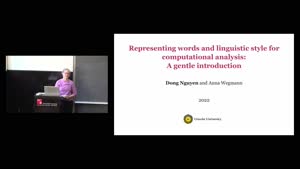
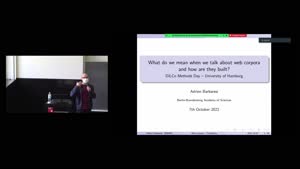
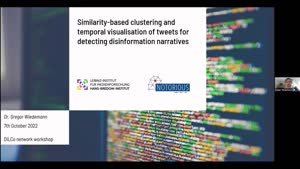
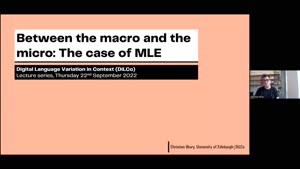
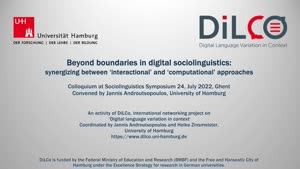
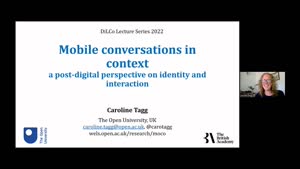
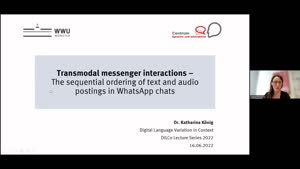
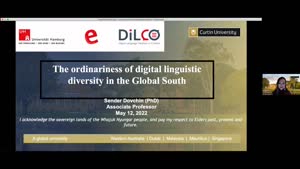
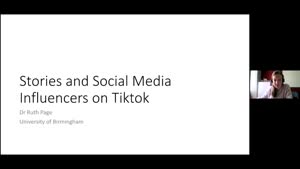
![Thumbnail - Graphic Prosody and political discourse on Greek Reddit [Presentation in Greek]](https://lecture2go.uni-hamburg.de/images/00.000_video-61074_2022-03-30_18-30_m.jpg?lastmodified=1663761108652)
